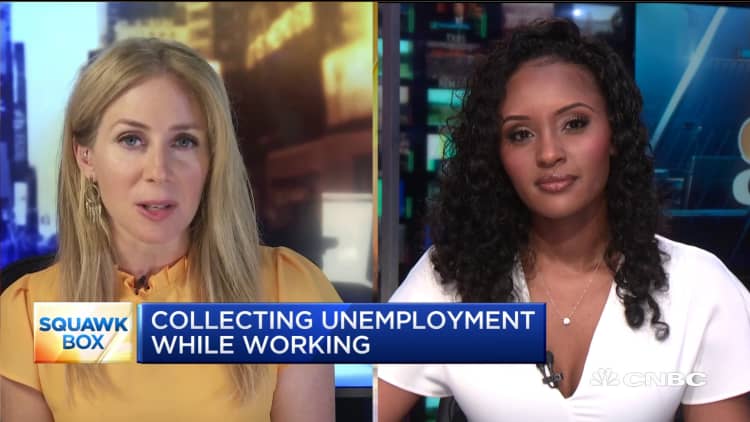
Small-business owners are struggling to stay afloat as coronavirus cases spike in many parts of the country — even with stimulus aid from the government.
Despite that, worker headcount among small businesses was nearly back to pre-Covid-19 levels, according to exclusive data compiled by human resource provider Gusto and based on more than 100,000 small businesses nationwide.
Even with an improved jobs picture, many employees are now working reduced hours and with lower pay, Gusto found.
More from Personal Finance:
Extra unemployment benefits are available
Back-to-work bonuses can't replace unemployment boost
5.4 million Americans have lost their health insurance
Altogether, headcount among small businesses rose 2.4% in June, while the percentage of employees temporarily furloughed fell for the second straight month — although that number remains 45% higher than a year ago. (An alternative to layoffs, furloughs allow companies to bring workers back quickly when the economy starts to heal. Although furloughed employees generally are not logging hours and don't earn wages, they may still be eligible for health insurance.)
As new cases of the coronavirus continue to soar nationally, some states are reconsidering their efforts to reopen their economies. That is making it even harder for business owners to get back normal, according to Eddie Kim, Gusto's co-founder and chief technology officer.
"The new normal is less heavy in terms of headcount," he said.
Christopher Hoyt, co-founder and chief operating officer of The Pioneer Collective, which operates co-working spaces in Seattle and Tacoma, Washington, said his business has been particularly hard hit.
With demand for coworking spaces at a standstill, Hoyt and his wife, Audrey, re-imagined their business by turning conference rooms over to video production teams to create digital content and virtual classes.
"We were able to cobble together enough revenue to keep us going," Hoyt said.
The Pioneer Collective also received a loan through the federal Paycheck Protection Program, which helped them keep four employees on staff — at reduced hours.
"All of that is enough to keep us around break-even, which has become to new goal when you focus on survival."

The PPP has been credited with returning 2.5 million Americans to work. As a condition of receiving full loan forgiveness, the program required businesses to rehire furloughed or laid-off workers.
Now, however, many business owners have used the bulk of that funding and more will have exhausted their loan money in the next few weeks, according to a recent survey by National Federation of Independent Business.
At the same time, many small businesses are struggling. Thirty percent of business owners reported sales as of mid-June that were less than half what they were pre-pandemic, the trade group said.
"I think that the PPP had in mind an assumption that this will be an eight-week thing," said Gusto's Kim. "That has proven not to be the case."
The PPP had in mind an assumption that this will be an eight-week thing.Eddie Kimco-founder and chief technology officer of Gusto
In addition, 14% of PPP loan borrowers said they may have to lay off employees after using the loan, the NFIB found.
And close to a quarter of all small businesses are still considering closing their doors permanently because of Covid-19, according to a separate report.
"It's a little messier to see where things go from here," said Daniel Sternberg, head of data science at Gusto.
Overall, small businesses employ roughly 59 million people in the U.S., according to the Small Business Administration.


